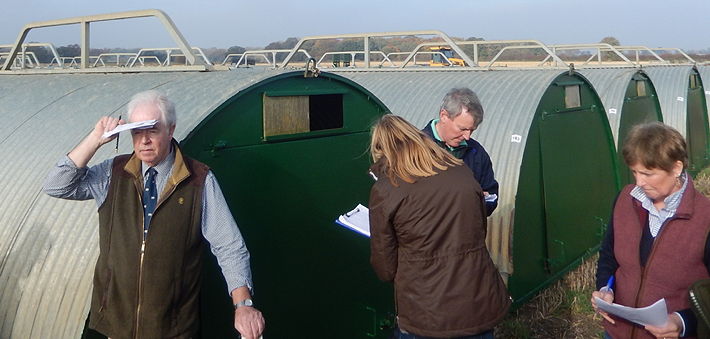Recent improvements in pig prices are finally filtering through to the SPP, which took a significant forward step rising by 3.2p to 141.71p helped by the ongoing price surge across the Channel, where German producer prices have gone up by another 10 Euro Cents to stand at 1.92 EUR, which is equivalent to 161p/kg in real money.
However, producers will still need price rises to carry on upwards to have any hope of putting the pig industry back in the black rather than 50 shades of red.
Unfortunately, in spite of further significant increases in EU pig meat prices, very little of this has managed to filter through to the domestic pig market as far as UK weekly contribution prices and although Woodheads have put up their weekly price by another 5p to 185p, the other major players have generally remained at last week’s levels between 158p and 160p with some of the larger buyers still reporting supply exceeding demand.
Although spot bacon prices are starting to recover from bargain basement levels, there is still a very wide gap between the top and the bottom. Prices quoted saw regular sellers able to achieve in the 125p – 130p/kg region, but spot bacon pigs are still at a significant discount with quotes as low as 112p/kg in some places, which is 26p/kg behind the SPP.
Cull sow values have however continued on their upward trajectory adding another 8p/kg this week, with the result that most are now between 74p – 78p/kg compared with little more than 23p/kg a couple of months ago.
Culls around the 150kg deadweight mark are now worth in the region £120/head but it still takes approximately 1.5 sows to fund the purchase of replacement gilts, whereas in the good old days (remember them) the rule of thumb used to be that a cull sow would pay for a maiden gilt.
On a slightly negative note however, an increase in the value of the Pound has pushed down the Euro from 84p seven days ago to 83.5p today, but as far as the UK pig industry is concerned a weakening Euro is bad news on the pig meat import/export front.
Although no weekly AHDB average prices are available, a rising SPP has the effect of putting up weaner values to some extent with most 7kg RSPCA assured piglets trading on contract between £31 – £36.50/head, but as previously it remains difficult to find homes for spot weaners and this market continues to be under severe pressure from soaring feed prices.
Although some UK arable farmers may be rubbing their hands at the thought of harvest time wheat sales in some cases of more than £300/t, these prices remain completely unsustainable for pig farmers.
With the situation in Ukraine remaining highly volatile, grain and protein prices have been all over the place and are to be treated with the upmost caution as far as budgets are concerned.
The latest price information available at the time of preparing this report indicates that spot feed wheat deals have averaged £300.60/t compared with £292/t a week ago.
Futures prices for feed wheat have seen April delivery sales agreed at £313/t and £268/t for September.
Feed barley values have nearly overtaken wheat and in the main are around £308/t for April and £253/t for September.
Protein prices have levelled to some extent with deals for Hipro soya at £506/t for April and £498/t for November – April 2023. Rapemeal is quoted at £427/t for May – July.
\With NATO leaders gathering for an emergency summit, the war in Ukraine is becoming prolonged and Ukraine is reported to have approximately 20m tonnes of grain exports blocked by Putin and his pals.
And finally, there is however agreement throughout much of the UK pig industry of the need to come up with a more proactive system of pig pricing to ensure that any immediate price variations are deducted further along the food chain rather than on a delayed basis, such as via the SPP.
At the same time there is recognition that any future pricing arrangements also need to include a significant COP element without which the industry will find it impossible to survive.
This view is robustly supported by Karro’s Chief Executive Steve Ellis, and it is hoped that throughout the slaughtering sector retailers can be persuaded to sacrifice some of their margins to allow producers to be paid a fair and sustainable price.
However, the urgency of this cannot be understated while soaring interest rates and other costs are also hitting the industry below the belt and causing permanent damage to the whole UK pig supply chain. Unfortunately there will also be many more sleepless nights ahead for the UK pig industry until the current situation in Ukraine is resolved, whenever that might be.




